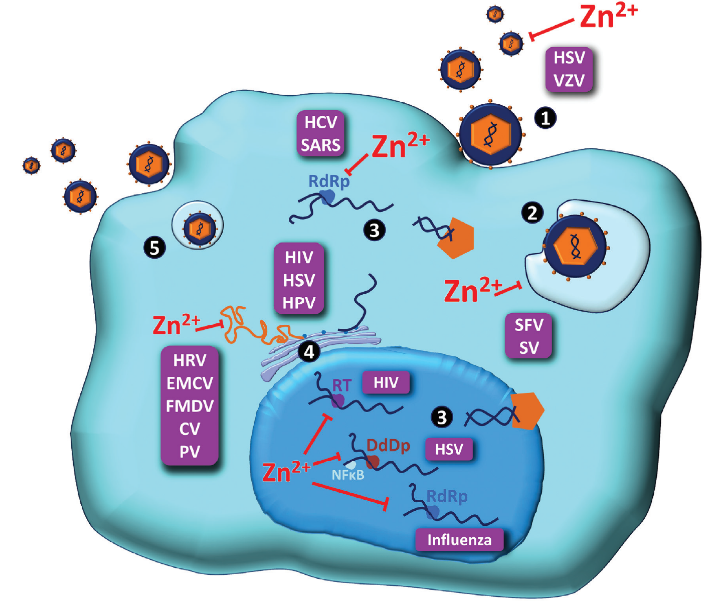> Research & Science
Antiviral effects of zinc
Zinc plays a significant role in initiating and maintaining a robust immune response. Furthermore, Zn has been shown to play an inhibitory role on diverse stages of the viral life cycle :

2. Inhibition of viral uncoating
3. Viral genome transcription
4. Viral protein translation and polyprotein processing
Published information on antiviral effects from zinc is available from cell culture work and human studies, but less so from experiments involving livestock. High supplementation levels of zinc oxide have been tested on weaned piglets. One study included piglets inoculated by the intranasal route with swine influenza virus (SIV). High ZnO fed piglets showed increased humoral immune responses following SIV vaccination and support recovery from clinical illness. However, there were no effects on cellular immune response, on virus shedding and on the development of lung lesions after challenge infection. Another study tested the oral challenge with transmissible gastroenteritis virus (TGEV). Dietary treatments were three supplementation levels of zinc oxide: low (50ppm), medium (150ppm) and high (2500ppm). At 14 days, greater TGEV-specific serum antibody titers were detected in medium/high Zn groups compared to the low Zn group. TGEV infection in low Zn piglets resulted in villus atrophy, which could be prevented by medium/high diets.
Source : BMC Veterinary Research 2014, 10:75

